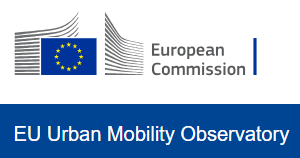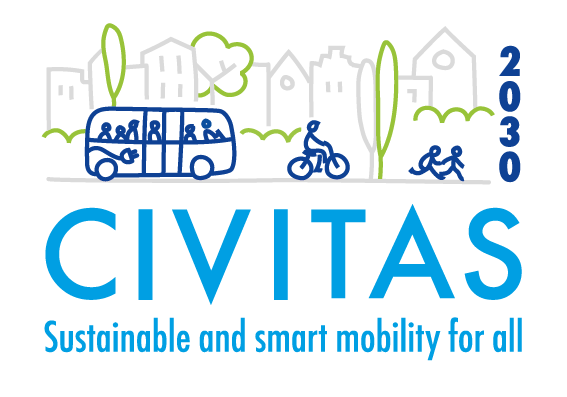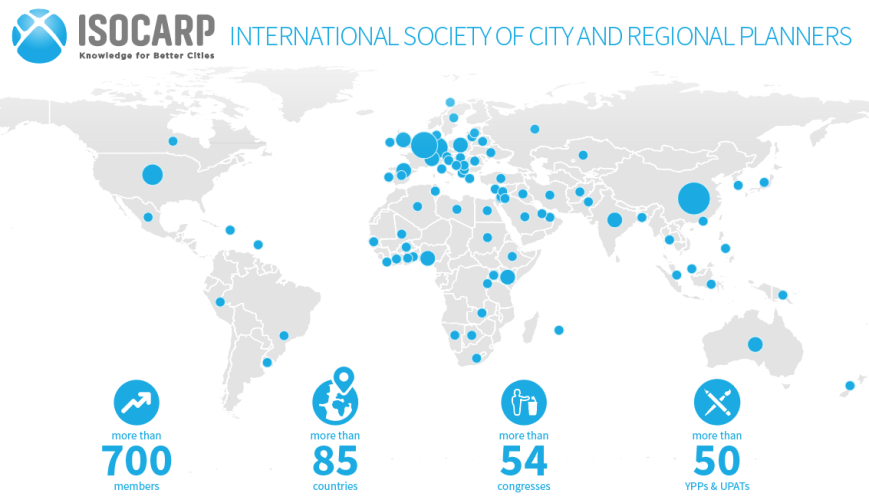Subject: CIVINET CY-EL and ISOCARP JOINT CALL FOR POST COVID-19 SUSTAINABLE MOBILITY
TO WHOM IT CONCERNS
COVID-19 has a disruptive impact on the way we live and move around, on cities and society as a whole. People mobility has been one of the sectors most affected by the outbreak. This pandemic health crisis is being tackled in our hospitals, but also in our streets and public spaces, on our buses, trains and subways. The Greek-Cypriot branch of the EU-funded CIVITAS (CIVINET CY-EL) and the International Society of City and Regional Planners (ISOCARP) want to help cities and regions navigate these difficult times, by establishing and implementing integrated sustainable urban mobility and planning.
During the lockdown, based on anecdotal evidence, we have witnessed a substantial increase of functional and recreational walking and cycling in Greek cities, often at risk due to over-speeding cars and motorbikes in nearly empty streets and roads. By the same token we also witnessed cleaner air in large cities and overall reduction of harmful carbon emissions[1]. Overall, a healthier lifestyle and cleaner air is saving as many lives as preventing harm caused by the coronavirus, if not many more and on longer term. It would be good if this anecdotal evidence can be backed up by real data, but even without we strongly recommend a policy change to extend and utilize the momentum of healthy micromobility in Greece’s cities and regions (including the islands!). This policy shift would entirely align with European Sustainable Urban Mobility policy. The approach, known as A-S-I (from Avoid/ Reduce, Shift/Maintain, Improve), seeks to achieve significant carbon emission reductions, reduced energy consumption, less congestion, with the final objective to create more livable cities. CIVINET CY-EL and ISOCARP are highly recommending the smooth, appropriate and efficient application and expansion of the so-called Sustainable Urban Mobility Plans (SUMPs) in Greek cities and regions.
While SUMPs could ensure an integrated urban mobility and planning approach on the longer term, we also strongly advocate immediate actions as part of the Covid-19 exit strategy, as demonstrated by many other cities and region in and outside the EU[2], including:
- Creating temporary extended or new walk- and cycleways on main roads and streets, as a first step to redesign and repave the roads and streets for safer mobility and street life;
- Increasing the safety of pedestrians and cyclists by traffic calming and reducing speeds of motorized transport;
- More and safer street and road crossings;
- Safe School Street approach with temporary interventions for physical distancing during pandemic and more permanent interventions post corona;
- Encouraging micromobility through public awareness campaigns (as done during the lockdown);
- Increasing access to organized shared micromobility (shared bicycles, e-bikes and scooters);
- Modernizing/electrification and diversifying the public transit fleet with Transport Oriented Development around main stations and interchanges;
- Establishing Low Emission Zones in cities that will be largely and gradually pedestrianized;
- Establishing and enforcing a stricter and revenue-based parking policy for private cars and motorbikes;
- Long-distance recreational and functional fast cycling routes along coast-lines in major coastal cities.
By capitalizing on the digital shift during the lockdown, continuation of teleworking should reduce private car mobility and gradually develop more people-friendly cities and regions, with outstanding health benefits for the entire society.
We are committed to encourage and support all governments levels and related private and civil society stakeholders to advance well integrated sustainable urban mobility. Please do not hesitate to contact us!
Yours sincerely,

[1] European Environment Agency’s (EEA) data confirm up to 50% drop in air pollution due to reduced traffic in cities, especially in major cities under lockdown measures. A number of health authorities have warned that those citizens with certain pre-existing conditions, such as respiratory illnesses, may have an increased vulnerability to COVID-19. However, at present it is not clear whether ongoing exposure to air pollution might worsen the condition of those infected by the virus. Further epidemiological research is needed to address such questions.
[2] Paris is the latest global city to roll out emergency bike lanes for the use of key workers and others during the lockdown. 650 kilometers of cycleways—including a number of pop-up “corona cycleways”—opened on May 11 when lockdown was eased in France. Milan is to introduce one of Europe’s most ambitious schemes reallocating street space from cars to cycling and walking, in response to the coronavirus crisis.



